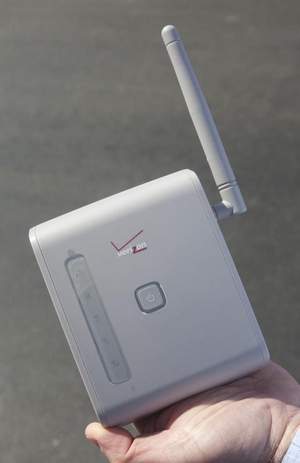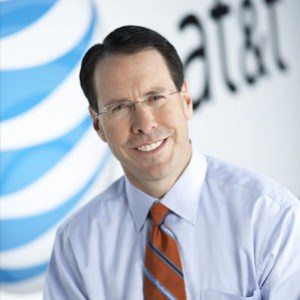
Verizon Voice Link: The company’s landline replacement, works over Verizon Wireless.
The New York Public Service Commission has granted limited approval for a Verizon Communications plan to replace traditional landline service on the western half of Fire Island with a wireless voice service some users complain is unstable and unreliable.
Verizon claims its landline network on Fire Island has been damaged irreparably in places, and argued it needed to immediately deploy a wireless alternative before the arrival of thousands of tourists on the island, a popular summer destination.
On May 3, Verizon asked the commission to approve the use of Voice Link, which provides fixed wireless phone service, anywhere in the state if the company can prove there is an equal competitor or if existing copper-based facilities are damaged or too costly to upgrade.
Stop the Cap! reminded local politicians, union representatives, and consumer advocates Verizon’s CEO earlier promised it would decommission its copper wire networks in rural areas in favor of wireless, mostly for financial reasons. The New York State Attorney General’s office took careful note of McAdam’s commitment to abandon copper in their objection letter to the commission.
Verizon CEO Lowell McAdam in 2012:
The vision that I have is we are going into the copper plant areas and every place we have FiOS, we are going to kill the copper. We are going to just take it out of service and we are going to move those services onto FiOS. We have got parallel networks in way too many places now, so that is a pot of gold in my view. And then in other areas that are more rural and more sparsely populated, we have got LTE built that will handle all of those services and so we are going to cut the copper off there. We are going to do it over wireless.
Verizon’s efforts to rush a tariff change without adequate public notice or formal hearings brought complaints from affected customers, unions, and area politicians.
The Communications Workers of America called Verizon’s emergency “self-made.” The company could have begun repair work on Fire Island as early as last November, but instead only came to regulators earlier this month with its Voice Link proposal, while much of the western half of the island remains out of service.
CWA officials are concerned Verizon is using Hurricane Sandy as an excuse to carry out its broader agenda of abandoning rural New York’s landline infrastructure in favor of wireless service.
“Playing on sympathy for the plight of customers whom it has left without service for more than six months, Verizon proposes to implement broad, generic rules that go to the core of its obligation to serve,” said CWA vice president Chris Shelton.
 The union considers Verizon’s wireless alternative less adequate than the wireline facilities Verizon wants to abandon. The CWA wants the PSC to study Voice Link’s performance during times of peak cellular usage times, power outages, adverse weather, and inadequate reception.
The union considers Verizon’s wireless alternative less adequate than the wireline facilities Verizon wants to abandon. The CWA wants the PSC to study Voice Link’s performance during times of peak cellular usage times, power outages, adverse weather, and inadequate reception.
Thomas Barraga, a legislator in Suffolk County, says his constituents with Voice Link service are already unhappy with its performance and reliability.
“Residents and business owners who had Voice Link installed after Sandy say the connection is unstable and unreliable, and doesn’t provide for DSL Internet or fax service,” Barraga wrote in a letter to the PSC.
“Internet service is so much a part of everyday life it should be consider a basic service and they should be mandated to provide this as well,” writes Fire Island resident Robert Gonzalez. “They should provide this for the same fees and usage rates as they had previously been charging. As of today they are price gouging. Prior to Sandy we paid approximately $50 per month for unlimited Internet access. Now they are putting low limits on our usage for the same $50 per month with severe penalties for going over. You can opt for higher usage plans at a much greater cost and they are not offering an unlimited plan.”
Stop the Cap! also continues to hear from Fire Island residents about their dissatisfaction with the service. Among the newest complaints we have received:
- “It doesn’t work with collect calls and you cannot dial “0” for operator assistance;”
- “I have to dial 10 digits for all calls, seven digit dialing no longer works even though it did before;”
- “Call Waiting and Caller ID often do not work, and my unit does not ring for incoming calls about 30% of the time and people have to keep calling me back;”
- “When you attempt to take a call when on the line with someone, you cannot get them back after answering a new call;”
- “I cannot use this with my home alarm system at all and the monitoring company keeps notifying police because they think my phone line was cut;”
- “If we had a major storm with three days of power being out, Verizon’s claim Voice Link will work for two hours without power means I would have to feed it up to 72 ‘AA’ batteries, costing more than what the phone line costs me every month;”
- “What does this do to our future? It makes us second class citizens without access to the Internet except through very expensive wireless capped usage plans that cost much more.”
The PSC ruled that allowing Verizon to deploy Voice Link on Fire Island during the peak tourist season will make sure adequate phone service is up and running as quickly as possible. But the commission also made it clear it is unwilling to approve Verizon’s request to extend the service further into rural New York without a thorough review of its performance and customer reaction.


 Subscribe
Subscribe
 When Industry Canada announced it was planning to boost competition by setting aside certain spectrum for new competitors entering the wireless marketplace, the Conservative government promised Canadians they would see a new era of robust competition and lower prices as a result.
When Industry Canada announced it was planning to boost competition by setting aside certain spectrum for new competitors entering the wireless marketplace, the Conservative government promised Canadians they would see a new era of robust competition and lower prices as a result.


 AT&T says government regulations have hampered the company’s plans to roll out faster broadband networks to areas where consumers and businesses want faster speeds.
AT&T says government regulations have hampered the company’s plans to roll out faster broadband networks to areas where consumers and businesses want faster speeds.
